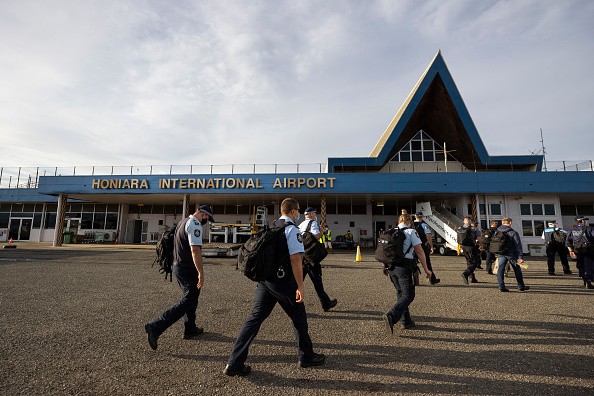A strong earthquake struck the Solomon Islands on Tuesday, according to reports. The quake's magnitude was 7.0, causing residents to evacuate due to a tsunami alert.

According to AP News, the US Geological Survey said the earthquake epicenter was about 56 kilometers or 35 miles southwest of Honiara.
Meanwhile, the quake's dept was 13 kilometers or eight miles.
The report added that the Solomon Islands is on the Pacific Ring of Fire, where earthquakes frequently happen.
The authorities were assessing the earthquake's impact. However, the report said no major damage or injuries were recorded.
Due to the earthquake, residents were alerted by a tsunami warning. Residents in the area immediately looked for high grounds.
Meanwhile, AP reported that the High Commission's roof collapsed, but no one was injured.
George Herming, Solomon Islands government spokesperson, told AP News that the earthquake shocked everyone.
Herming added that the Solomon Islands has about 700,000 people there. While there was no immediate damage to properties or infrastructure, Herming noted that the place had no high-rise buildings.
Indonesia's earthquake
Meanwhile, the previous report showed that a 5.6 magnitude hit Indonesia on November 21.
The earthquake in Indonesia caused buildings to collapse and a widespread power outage.
How to prepare for an earthquake
The impact of earthquakes can be devastating, damaging properties and infrastructures. It could claim lives. While there are technologies tracking earthquakes, there are still areas without internet or communication lines.
The earthquake could also cause a tsunami in areas near the coast. The rapid rise of water from the impact of earthquakes can inundate communities.
Here are some reminders if an earthquake strikes. It is best to know how you and your family could prepare. Making a preparations plan could help save the day.
- Always secure flammable and toxic materials that will not spill during an earthquake. It is best to ensure that all fragile and heavy items are not secured or close to your bed.
- Check your home for potential cracks and immediately call for repairs.
- Prepare an emergency bag with medicines, basic food supplies, and a flashlight. At the onset of an earthquake, power and communication lines might be turned down or damaged. A battery-powered radio will be useful.
- Stay updated with the weather and disaster agency for potential earthquakes. Immediately evacuate when local or national authorities announce.
- Always remember the "drop, cover, and hold." When earthquake strikes, drop down and cover your head for any possible debris.
- Look for safe spaces or places. It is best to avoid windows, fragile items, or heavy equipment that could fall. Stay calm at all times.
- After the earthquake's impact, check yourself and your family members. Having the necessary skills in first aid, you could help your family members that were hurt or injured. If anyone is injured, you could rush to the nearest hospital.
- Be careful with falling debris and damaged roads, houses, power lines, and buildings. Check your home for potential earthquake damage.
Related Article : Earthquake Triggers 'Desert Tsunami' in Death Valley, Reducing Food Available to Pupfish
For more similar stories, don't forget to follow Nature World News.
© 2025 NatureWorldNews.com All rights reserved. Do not reproduce without permission.





